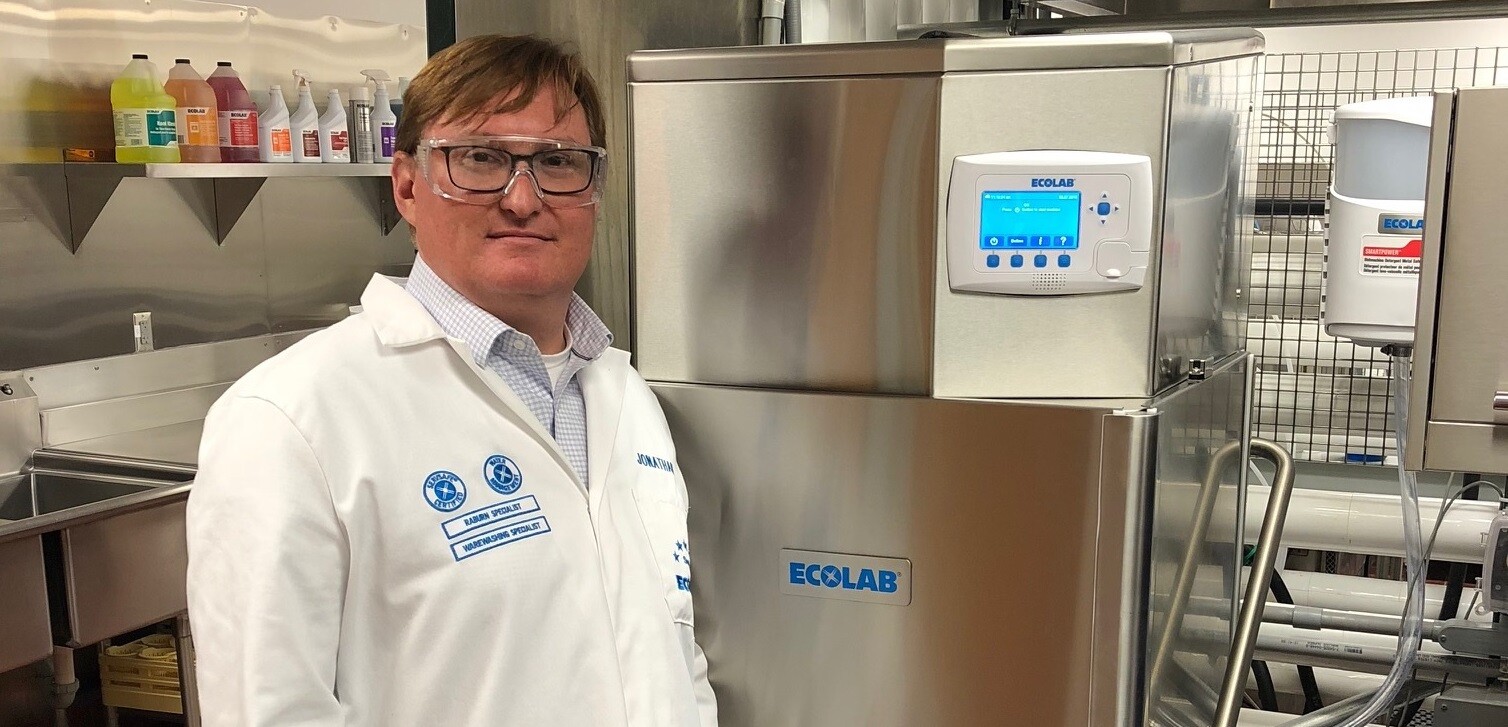Leadership Outside the Lines Series: Changing the world, one dishwasher at a time

In this special blog series, we are featuring stories from our 2018 Net Impact Conference partners about how individuals at their organizations are going outside the lines to make an impact from any position. Ecolab is a sponsor of the upcoming 2018 Net Impact Conference in Phoenix, AZ October 25-27th.
If you want to change the world for the better, you don’t have to work for an NGO, enter politics or be the chief sustainability officer for a big company. In fact, you can do many other things that are just as meaningful.
Take me, for instance. As a chemical engineer, I was part of developing Ecolab’s new EHT dishmachine that uses 50 percent less water and energy than previous models.
You may think that dishwashers are not very exciting, and I understand that. But we all eat at restaurants and those all have professional-grade dishwashers. That means that if you build a better dishwasher, you can help save huge amounts of water and energy.
I have always been interested in the environment. As an engineering student at the University of Minnesota, I interned at the school’s Integrated Waste Management Facility, where we figured out ways to process waste from the chemistry labs, so the students wouldn’t just pour chemicals down the drain.
As a kid, I had the good fortune to travel a lot with my family, so we spent a lot of time on airplanes. That got me thinking about all the engineering that goes into keeping passengers safe. Later, when I worked for an aerospace company, I worked on the avionics sensors on the Airbus A380, the biggest passenger plane in the world.
But I wanted to do more. That’s how I ended up at Ecolab, working on dishwashers. You don’t think about it when you’re enjoying a meal at a restaurant with your family, but dishwashers are a big part of keeping our food safe. If the dishmachines don’t work correctly, food and bacteria can be left on silverware and plates, and you risk cross-contamination when dishes are rewashed or cleaned by hand.
That’s why we developed a high-tech dishwasher that cleans in 60 seconds compared to your home unit that cleans in 60 minutes. To make things even more interesting, each machine is monitored remotely by Ecolab, so we can alert our team and restaurants of potential issues even before things start going wrong. That’s just as much of an engineering challenge as designing any aerospace system – and just as satisfying.
And then there’s the greater impact in the world. Currently, there are more than 660,000 restaurants in the U.S. alone and almost every one of them has at least one dishmachine. With all those units in operation, there’s enormous potential for water and energy savings. For every new Ecolab EHT dishmachine we install, we save enough water to fill two backyard swimming pools every year and enough energy to drive a Toyota Prius 200 miles every day.
In other words, just by stepping outside the lines and thinking differently to build a better dishwasher, you can make a big difference.
I think about these things a lot, because I have a son, and the challenges of climate change and water scarcity aren’t going away. It’s up to us to solve the problems that his generation will face.
My son is 11, and he’s a budding engineer. He goes to a STEM school and asks me about the same things I used to wonder about. “Why don’t we have more electric cars? How do solar panels work? How does our dishwasher work?” With so many important questions, it’s great for me as a dad to have answers.
Jonathan Butwinick is the Research, Development & Engineering program leader for Ecolab’s dishmachine program. In this role, Jonathan leads the innovation pipeline, new product development, and the management of the current dishmachine portfolio for Ecolab’s situational foodservice business. He holds a Bachelor of Science from the University of Minnesota.
Learn more about Ecolab’s work from their Chairman and CEO, Douglas M. Baker during the Friday morning Keynote at the 2018 Net Impact Conference.



